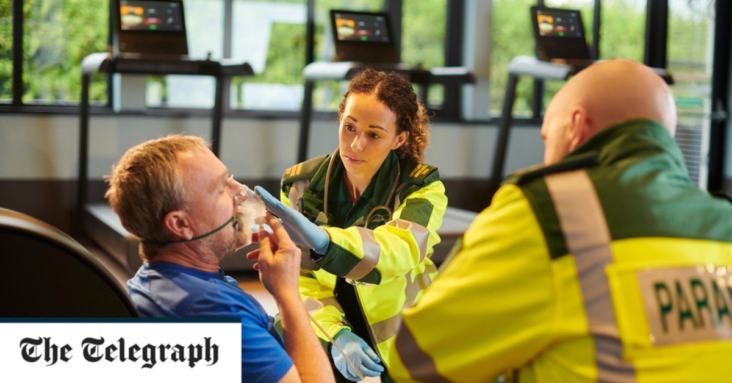
Heart deaths have risen by more than 500 a week, major research has shown, with experts saying “extreme disruption” to the NHS caused by the pandemic may have fuelled the crisis.
The study of government data revealed almost 100,000 extra deaths among people with cardiovascular disease (CVD) since spring 2020.
Experts said NHS disruption to heart care and increasing ambulance delays for heart attack and stroke victims had left Britain “in the grip of a heart and stroke care emergency”.
The British Heart Foundation (BHF) analysis of data from the Government’s Office for Health Improvement and Disparities (OHID) revealed an extra 96,540 deaths of patients with heart conditions since February 2020.
While excess cardiovascular deaths in the first year of the pandemic were linked to coronavirus infections, heart deaths have remained high since Covid deaths fell.
Cardiac experts said “severe ongoing disruption to NHS heart care” was among the factors driving the continued increase, with record delays for ambulances in recent months.
In December, average waits for ambulances for 999 calls involving heart attack patients breached 90 minutes, against a target of 18 minutes. Response times have been consistently above 30 minutes since the start of 2022.
Meanwhile, care of patients with conditions such as high blood pressure – which increases the risk of heart attacks and strokes – has deteriorated.
NHS figures show two million fewer people had their blood pressure under control in 2021 compared with the year before.
The BHF also raised concern about a potential rise in heart problems linked to Covid, with separate research showing those who caught the infection before the vaccine rollout were five times more likely to die in the 18 months after infection.
The figures from March 2020 to March 2023 show 839,467 deaths in England involving CVD – 13 per cent more than the 742,927 expected.
Dr Charmaine Griffiths, chief executive at the BHF, said: “It is deeply troubling that so many more people with cardiovascular disease have lost their lives over the last three years.
“My heart goes out to every family who has endured the pain of losing a loved one, all too often in distressing circumstances.
“For years now, it has been clear that we are firmly in the grip of a heart and stroke care emergency. If little changes, we could continue to see a sustained rise in death rates from cardiovascular conditions that undoes decades of scientific progress to reduce the number of people who die of a heart attack or stroke.
“There is no time to waste – Government must take control of this crisis to give heart patients and their loved ones hope of a better and healthier future.
“It can do this by prioritising NHS heart care, better preventing heart disease and stroke, and powering science to unlock future treatments and cures.”
Dr Sonya Babu-Narayan, a consultant cardiologist, said: “Covid-19 no longer fully explains the significant numbers of excess deaths involving cardiovascular disease. Other major factors are likely contributing, including the extreme and unrelenting pressure on the NHS over the last few years.”
The associate medical director at the BHF said: “Long waits for heart care are dangerous – they put someone at increased risk of avoidable hospital admission, disability due to heart failure and premature death. Yet people are struggling to get potentially life-saving heart treatment when they need it due to a lack of NHS staff and space, despite cardiovascular disease affecting record numbers of people.”
Last year research revealed more than 30,000 excess deaths involving coronary heart disease since the pandemic began, according to OHID data.
OHID now includes the broader disease category of “cardiovascular disease or CVD” which reveals for the first time how many excess deaths there have been involving all heart and circulatory conditions since the onset of the pandemic, with data taking account of an ageing and growing population.
Professor John Greenwood, president of the British Cardiovascular Society, said the findings were “worrying” with Covid not only causing direct effects in increasing heart risks, but with the pandemic having a knock-on effect on NHS treatment and prevention of heart problems.
A Government spokesman said: “We are cutting waiting lists, ambulance response times are falling, staff increasing and we are improving access to blood pressure and health checks.
“We know there is more to do which is why we are consulting on a Major Conditions Strategy to tackle cardiovascular disease – including strokes and diabetes – and we have opened 108 community diagnostic centres that have delivered over 4 million tests, scans and checks including for those with cardiovascular disease.
“The government is also working with NHS England to combat some of the causes of cardiovascular disease, with schemes to support increased physical activity, reduce obesity rates and encourage people to stop smoking.”


